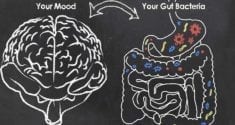Cognitive Health Found to Be Important Determinant of Lifespan
There is a common assumption that people lose their cognitive abilities as they age. We expect to see our memory, intelligence and brain function slowly decline in our later years. However, some people do not suffer from this cognitive decline, while others do, but much more slowly than average. Now, surprising new findings indicate that your cognitive health as you age is one of the most important determinants of your lifespan. Luckily, there are things you can do to improve your mental function at any age.
Cognitive Health: A Powerful Determinant of Lifespan
There are many factors that can predict how long a person will live. Of these, genetics, socioeconomic status and overall health are probably the best-known. While these are all important, there is one lesser-known but just as important factor: cognitive health. Elderly adults who have slower decreases in mental processing speed are likely to lead longer and healthier lives. A quicker decline in memory and mental function as you age, on the other hand, appears to predict an earlier death.
It is not surprising that good cognitive health is crucial to living a long life. You have to be able to think quickly in order to care for yourself on a daily basis, to manage your health care and to avoid dangerous situations. In addition, people who are taking care of their cognitive health by taking measures to prevent age-related decline are more likely to take equally-good care of their bodies.
Cognitive Decline in Your Golden Years: Is It Just Aging?
Many people plan to spend their retirement years relaxing with loved ones and exploring the world. However, health matters all too often get in the way—especially health matters related to mental and functional decline. A certain amount of cognitive decline is to be expected as we grow older. It is natural for your brain to become slightly slower in processing and for it to be harder to remember phone numbers and other details. However, this decline should be extremely limited and represent more of a slowing than a loss of actual information or skills.
 Unfortunately, many elderly people experience more decline in their cognitive health than this. Even people who do not have dementia may find themselves dealing with a condition known as Mild Cognitive Decline, in which they have a sharp decline in cognitive function but are still able to take care of their own basic needs.
Unfortunately, many elderly people experience more decline in their cognitive health than this. Even people who do not have dementia may find themselves dealing with a condition known as Mild Cognitive Decline, in which they have a sharp decline in cognitive function but are still able to take care of their own basic needs.
While it may be normal to experience a mild decline in your memory and cognitive health as you age, new research shows that even this is hardly inevitable. Age may not be the cause of this mental decline, but rather lifestyle factors such as retirement or even side effects of medications that many elderly take. Even if some degeneration is natural for aging people, it is not as severe as we believe. There are likely many yet unstudied factors playing a role.
Keeping Your Mind Sharp at Any Age
If living a long and healthy life is important to you, there are a few ways that you can preserve your mental function and memory to give yourself the best possible chances. Consider the following measures:
- Take a supplement containing herbs proven to improve mental function, such as gingko biloba.
- Eat a healthy diet with plenty of fish, fruits and vegetables.
- Take supplements with omega-3 fatty acids and a multivitamin containing B vitamins, vitamin E and other antioxidants.
- Drink more tea, especially black and oolong teas.
- Care for your mental and emotional health.
- Get plenty of exercise at least three times a week.
- Play games that challenge your brain, such as logic puzzles.
Any simple lifestyle measure that you take to stay healthy in body, mind and spirit will likely contribute to better cognitive health over your years and a longer, happier lifespan.
We all want to enjoy old age and to retain the faculties and abilities to truly get the most out of our retirement years. Taking care of your mental function is crucial to achieving these and other health goals. It is important to spend as much time exercising your brain as exercising your body so you can enjoy not just good physical health but good cognitive health as well.





